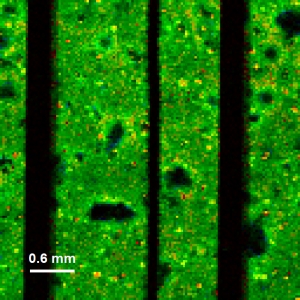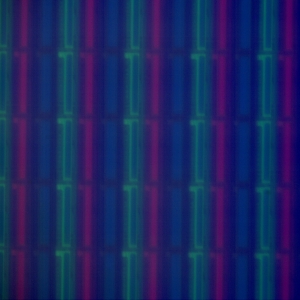Fluorescence Microscopes
FluoMic
Compact Upright Widefield Photoluminescence Microscope
- Widefield time-resolved photoluminescence microscope
- Based on time-correlated single photon counting (TCSPC)
- Lifetime detection range from a few ps to several ms with ps timing resolution
- Selectable excitation wavelengths from 375 to 1060 nm
- Detection range from 400 to 1700 nm
- Easy data acquisition and powerful analysis with EasyTau 2 and SymPhoTime 64 software
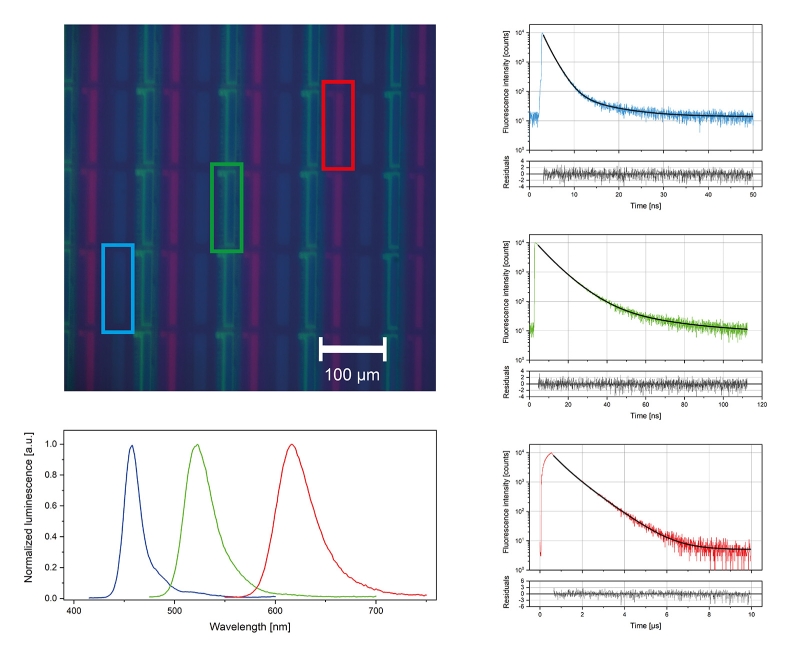 In many cases, characterizing materials such as semiconductors or solar cells requires measuring their photophysical properties at various points with spatial resolution. Depending on the sample, scanning over a large sample area is often interesting, besides measurements at various points. The FluoMic provides a fast, easy, and reliable way to measure steady-state (from UV to NIR) and time-resolved (from ps to ms) luminescence with a spatial resolution down to 2 μm.
In many cases, characterizing materials such as semiconductors or solar cells requires measuring their photophysical properties at various points with spatial resolution. Depending on the sample, scanning over a large sample area is often interesting, besides measurements at various points. The FluoMic provides a fast, easy, and reliable way to measure steady-state (from UV to NIR) and time-resolved (from ps to ms) luminescence with a spatial resolution down to 2 μm.
Thanks to its pre-aligned optical fibers, pulsed and CW laser light sources can be used to excite a sample under the microscope. In combination with the FlexLambda Wavelength Selection Unit and the SymPhoTime 64 software, steady-state photoluminescence spectra as well as wavelength-selected decays and even time-resolved emission spectra (TRES) can be measured from a small area with FluoMic.
It is available with various microscope stands (e.g., the Olympus BX43, BX53(-P), BX63 and even BXFM) and by this provides a high flexibility for samples and measurement conditions.
Scientific guidance and user training
 PicoQuant annually holds the European short course on "Time-resolved Microscopy and Correlation Spectroscopy". The course is intended for individuals wishing an in-depth introduction to the principles of time-resolved fluorescence microscopy and its applications to the Life Sciences. This 3-day event consists of lectures as well as instrumentation and software hands-on training.
PicoQuant annually holds the European short course on "Time-resolved Microscopy and Correlation Spectroscopy". The course is intended for individuals wishing an in-depth introduction to the principles of time-resolved fluorescence microscopy and its applications to the Life Sciences. This 3-day event consists of lectures as well as instrumentation and software hands-on training.
Microscope stands a) |
||||||
| Olympus | BX43 | BX53-P | BX63 | BXFM | ||
| Type | Upright, manual | Upright, manual | Upright, automated | Upright, manual | ||
| Illumination | Transmission, Side-on Epi-Fluorescence |
Transmission, Polarization Epi-Fluorescence |
Transmission, Epi-Fluorescence |
Epi-Fluorescence | ||
| Camera a) | CMOS, 1280x1060 Pixel, vis-NIR | CMOS, 1280x1060 Pixel, vis-NIR | CMOS, 1280x1060 Pixel, vis-NIR | CMOS, 1280x1060 Pixel, vis-NIR | ||
| Dimensions (base unit) (w × d × h) b) | 400 x 600 x 600 mm | 400 x 600 x 600 mm | 400 x 600 x 600 mm | 400 x 600 x 600 mm | ||
| Weight (base unit) b) | 15 kg | 20 kg | 25 kg | 20 kg | ||
Olympus Objectives a) |
||||||
| Magnification | 10x | 20x | 40x | 100x | ||
| Numeric aperture | 0,40 | 0,40 | 0,65 | 0,90 | ||
| Working distance | 3.1 mm | 1.2 mm | 0.6 mm | 1.0 mm | ||
| Spot size (excitation) | 120 µm | 60 µm | 30 µm | 12 µm | ||
| Spot size (emission) | 20 µm | 10 µm | 5 µm | 2 µm | ||
Excitation sources |
||||||
| Light source | Laser Diode Heads (LDH Series) | ps Laser Module (Prima/Unico) | ||||
| Wavelength range | 375 – 1060 nm | 375, 405, 450, 485, 515, 640 nm | ||||
| Pulse width range | < 40 – 200 ps, 6000 ps for MB lasers | < 80 – 200 ps | ||||
| Repetition rate | 1 Hz – 100 MHz | 1 kHz – 200 MHz | ||||
| Operation modes | Pulsed, CW, and burst mode | Pulsed, CW, and fast switched CW mode | ||||
Detectors a) |
||||||
| PMT based | PMA-C 175 | PMA-C 192 | NIR-PMT 1400 | |||
| Spectral range | 230 – 700 nm | 230 – 920 nm | 900 – 1400 nm | |||
| Dark counts (at 20°C) | < 50 cps | < 1100 cps | < 10 000 cps | |||
| TTS (FWHM) | < 180 ps | < 180 ps | < 370 ps | |||
| Recom. max. count rate | < 5.0 MHz | < 5.0 MHz | < 1.5 MHz | |||
| PMA Hybrid | PMA Hybrid-07 | PMA Hybrid-40 | PMA Hybrid-50 | |||
| Spectral range | 220 – 850 nm | 300 – 720 nm | < 370 – 920 nm | |||
| Dark counts (at 20°C) | < 150 cps | < 150 cps | < 600 cps | |||
| TTS (FWHM) | < 50 ps | < 120 ps | < 160 ps | |||
| Recom. max. count rate | < 80 MHz d) | |||||
| SPAD based | MPD | Excelitas | InGaAs MPD | |||
| Spectral range | < 400 – 1000 nm | < 400 – 1060 nm | < 850 – 1700 nm | |||
| Dark counts (at 20°C) | < 100 cps | < 100 cps | < 400 cps | |||
| TTS (FWHM) | < 50 ps (typ. < 35 ps) | < 250 ps (typ.) | < 50 ps (typ. < 35 ps) | |||
| Recom. max. count rate | < 10 MHz | < 35 MHz | < 10 MHz | |||
TCSPC electronics |
||||||
| TCSPC device | PicoHarp 330 | MultiHarp 150 4P | MultiHarp 150 4N | TimeHarp 260 Pico | ||
| Number of channels | 1 + 4 e) | 1 + 4 | 1 + 4 | 1 + 2 | ||
| Min. bin width | 1 ps | 5 ps | 80 ps | 25 ps / 2.50 ns (MCS) | ||
| Max. number of time bins | 65 536 | 65 536 | 65 536 | 32 768 | ||
| Full scale time range | 65 536 ps - 550 ms | 327 ns – 2.74 s | 5.24 µs – 22.00 s | 819 ns - 170 s (MCS) | ||
| Interface | USB 3.0 | USB 3.0 | USB 3.0 | PCIe 2.0 x1 | ||
Scanning (optional) |
||||||
| Scanner | Widerange scanner | Widerange scanner | Objective scanner | |||
| Type | XY Piezo widerange | XY Piezo widerange | XYZ Piezo objective | |||
| Range | 75 x 75 mm | 25 x 25 mm | 80 x 80 x 80 µm | |||
| Min. step size | 100 nm | 75 nm | 1 nm | |||
| Positioning accuracy | 600 nm | 300 nm | 10 nm | |||
Coupling (optional) |
||||||
| Type | FlexLambda | FluoTime 250 | FluoTime 300 | |||
Operation conditions |
||||||
| PC requirements | Quad-core CPU > 3 GHz, RAM >= 4 GB | |||||
| Operation system | Windows™ 10/11 | |||||
| Power requirements | 220/240 or 110/120 VAC, 50/60 Hz | |||||
| Table | BX43: regular | BX53: regular | BX63: regular | BXFM: opt. Breadboard | ||
| Housing | available on request | |||||
a) others on request
b) without breadboard and housing
c) values provided by Hamamatsu
d) with CW excitation
e) upgradable
All Information given here is reliable to our best knowledge. However, no responsibility is assumed for possible inaccuracies or omissions. Specifications and external appearances are subject to change without notice.
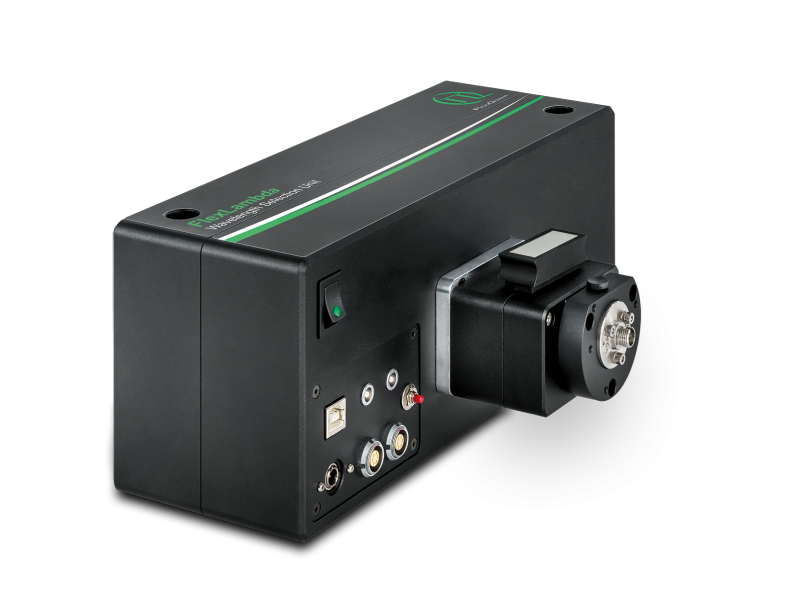 Add-on: FlexLambda Wavelength Selection Unit for Widefield Microscopes
Add-on: FlexLambda Wavelength Selection Unit for Widefield Microscopes
Feature highlights:
- Spectral scanning with > 80 % transmission from 400 to 1000 nm for highest sensitivity
- High temporal resolution without pulse broadening by an optical diffraction grating
Suitable for various applications:
- Materials Sciences: time-resolved and spectrally resolved microscopic characterization of solar cells and photovoltaics, LEDs and OLEDs, nanoparticles and 2D materials
- Measure photoluminescence spectrum at a point of interest in sample
- TRES imaging: measure TRPL images at defined emission wavelengths
- Measure wavelength-dependent antibunching
Specifications:
- Spectral range: 400 - 1000 nm
- Transmission: > 80 % over the whole spectral range
- Bandwidth min.: 1 nm
- Bandwidth max.: 80 nm
- Step width min: 0.1 nm
- Detection: single detector directly mounted or fiber-coupled multi-channel detection unit
- Detector types: PMA Hybrid series or SPADs
- Software: SymPhoTime 64
Detailed specifications are included in the Datasheet Wavelength Selection Unit FlexLambda.
Applications for Compact Upright Widefield Photoluminescence Microscopes
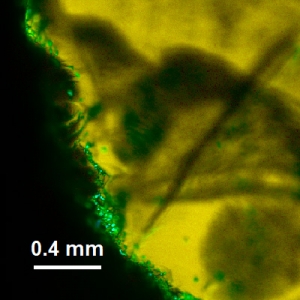
Studying minerals and crystals
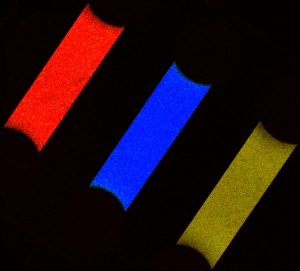




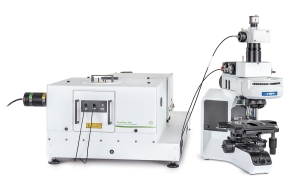
 Contact us
Contact us
